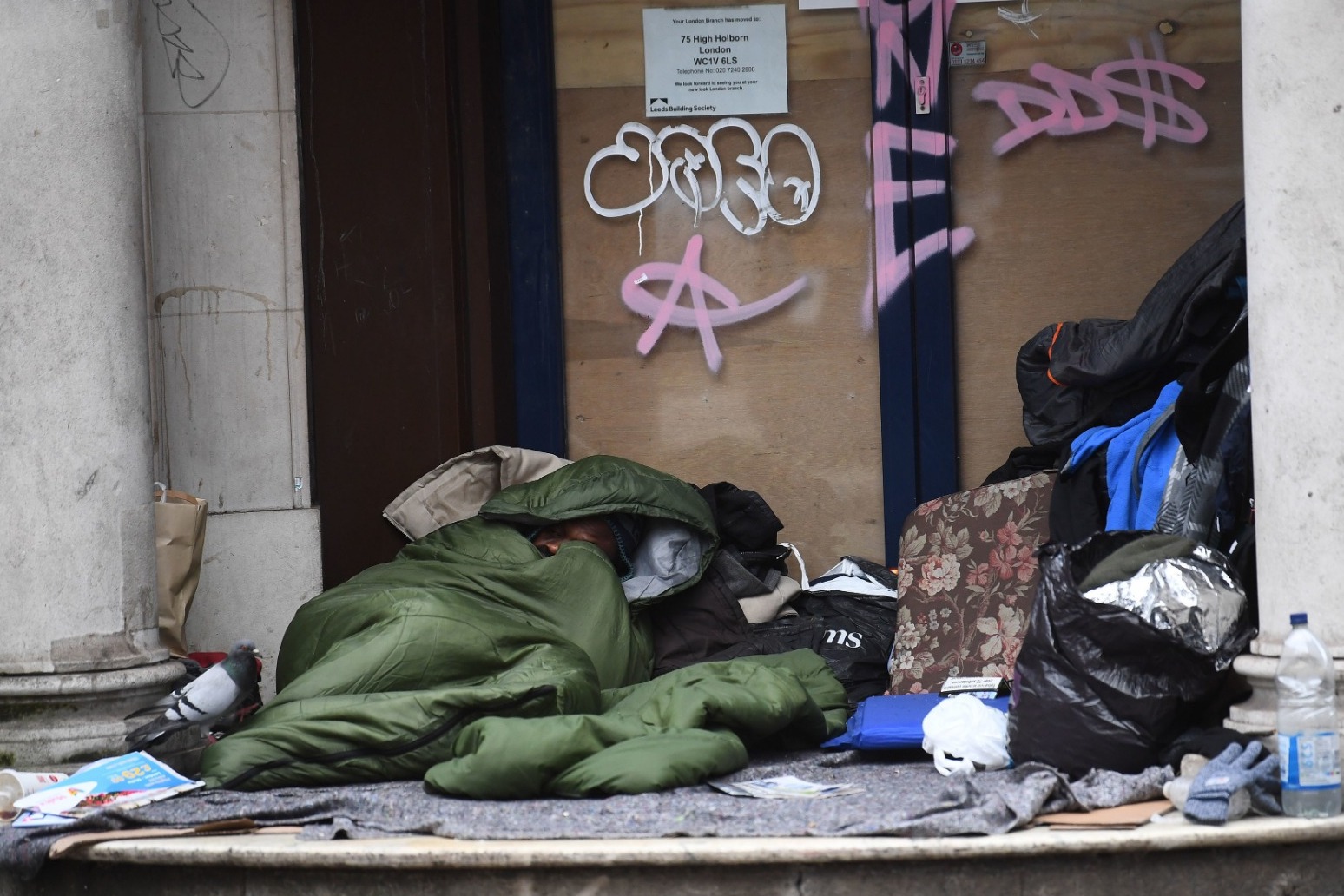
Lack of affordable housing thwarting efforts to tackle homelessness, report says
More than a third of people who asked their local authority for help remained or became homeless due to a lack of affordable housing, a report suggests. Some 38% of those who approached their local authority for help saw their housing situation either stay the same or worsen, according to a survey by Crisis, the national charity for homeless people.
These were people experiencing the worst forms of homelessness which include rough sleeping, sofa surfing and people sleeping in cars and public transport.
The charity's report examines how the Homelessness Reduction Act (HRA) is working from the perspective of people facing homelessness.
It was introduced in April 2018 to prevent people from becoming homeless in the first place.
The act includes a prevention duty - where local authorities must take reasonable steps to prevent homelessness within 56 days - and a relief duty, where they must take reasonable steps to help secure accommodation for those currently homeless and eligible.
But Crisis says councils' "best efforts" are being thwarted by a chronic shortage of affordable homes and rising rents pricing out those on lower wages and benefits.
Many respondents told Crisis the only support councils were able to offer them was information on how to rent privately while others were placed into temporary accommodation such as B&Bs.
In some cases, the only help people were given was a list of potential private landlords for them to contact, only for them to discover their housing benefit would not cover the rent.
Crisis chief executive Jon Sparkes said: "It's deeply distressing that, across England, councils are being forced to leave the people they are trying to help on the streets or drifting from sofa to sofa - all because they cannot find somewhere safe and affordable for them to live.
"The HRA has made some good progress in preventing people from becoming homeless, but it's worrying to see that it's being constrained by a chronic lack of housing and cuts to housing benefit.
"The HRA can be at the heart of ending homelessness for good, as this report shows, but this is only possible if councils are properly resourced and have the tools they need to help people leave homelessness behind for good."
The report is based on surveys of 984 people, as well as 89 interviews, with people seeking homelessness assistance for two years and interviews with six local authorities.
It found the law change has "significantly expanded access to homelessness assistance", particularly so for single people.
Three-quarters of those surveyed said they were treated with respect and were able to communicate confidentially with staff.
But the report concludes that the act's "intention and ambition" is "being constrained by the housing market, welfare system and funding".
Nearly a third of respondents (31%) were offered temporary accommodation, which can often be short-term and unsuitable. The most commonly offered types were hostels and B&Bs.
Crisis is calling on the Government to invest in housing benefit so that it covers the cheapest third of rents and commit to building 90,000 social homes each year for the next 15 years.
It also wants a duty to prevent homelessness to be placed on all relevant authorities including the Ministry of Justice, Department for Work and Pensions, Department of Health and Social Care, Home Office and Department for Education.
For more than a third of people sleeping rough, job loss and mental health problems were the root causes for becoming homeless.
Over half of the respondents renting privately said increasing financial pressures and insecure tenancies had contributed.
Councillor David Renard, the Local Government Association's housing spokesman, said: "Councils are doing what they can to support all people who face the tragedy of being homeless, and we fully support this report's call for more affordable housing.
"Homelessness services, which face a funding gap of more than £400 million by 2025, are under extreme pressure as a result of rising demand driven by a severe shortage of social housing.
"Councils want to work with government to be able to prevent homelessness before it happens, but as a result of unprecedented funding pressures, they are becoming increasingly limited in what they can do."
Councillor Darren Rodwell, London Councils' executive member for housing and planning, said: "The situation is particularly severe in London, where we face the worst homelessness crisis in the country.
"London boroughs are committed to supporting homeless Londoners as best we can and making a success of the Homelessness Reduction Act, but this can't be done on the cheap and we urgently need more resources for our frontline work.
"The Government must use the Budget to boost funding for local homelessness services."
A spokeswoman for the Ministry of Housing, Communities and Local Government said: "Everyone should have somewhere safe to live, and to support those most in need we have removed the borrowing cap, freeing up councils to double housing delivery to around 10,000 new social homes a year by 2021/22.
"We've also made £9 billion available through the Affordable Homes Programme to March 2022 to deliver approximately 250,000 new affordable homes of a wide range of tenures, helping more families find a place to call home."
Published: by Radio NewsHub